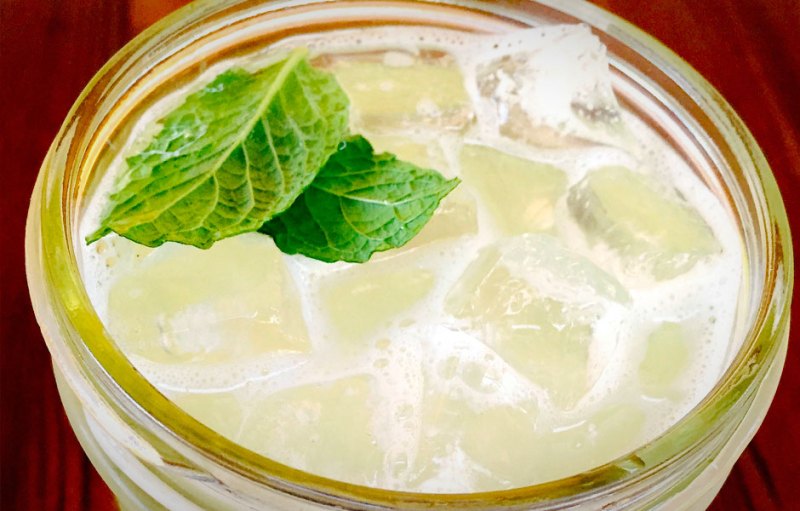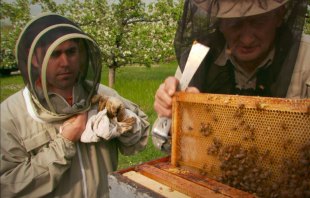
Honey is a magical thing: it’s a natural antiseptic, a healthy sweetener, and it never spoils– hell, honey found in ancient pharaohs’ tombs is still edible. And now bees and American beekeepers are getting a helping hand from renowned chef David Guas as he takes mead from the gods and gives it back to the people at both the Capitol Hill and Arlington, VA locations of his restaurant, Bayou Bakery.
Mead has been around for thousands of years, drunk by most of history’s heavy hitters, the Greeks, Romans, the Chinese, Vikings, it’s even immortalized in fictional works as the drink of deities and warriors. Mead is made by fermenting honey, adding water and sometimes spices or herbs, and traditionally, is a very sweet wine-like drink.
Guas calls it “…the next new old thing,” as brewers and vintners rediscover and update the drink. Take Charm City Meadworks, the Baltimore-based mead supplier Guas handpicked to serve at Bayou: James Boicourt, co-owner of Charm City, kept bees in college and began incorporating that honey into his home-brews. When he met the other side of that “co” in co-owner Andrew Geffken who had his own love of home-brewing, Charm City was officially born and mead, infused with local herbs and spices, has never tasted so good. Guas cleverly uses Charm City’s variety of meads, ranging from a wine like libation to canned, almost beer-like mead, not only as drinks and cocktails, but even as a braising liquid for meat. The Melon-Aide Cocktail Guas created is the perfect refreshing, unique summer drink: a honeydew base with Charm City Mead.
Honeybees are the unsung heros of this ancient beverage: they may be a nuisance you try to avoid (or even prevent), but bees are actually vital to ecosystems and farming. While producing honey, they also pollinate around a third of the food we eat. Those are some industrious bees and they struggle for survival, helped along by dedicated beekeepers.

As a spokesperson for the National Honey Board, Guas is a natural ally for this misunderstood insect. He supports local honey makers who are struggling in their own right: illegal imports can severely undercut American-made honey, making it difficult for US producers to compete. (However the National Honey Board does represent both large and small honey producers and companies, including legally imported honey). Guas gets his hands sticky each year, making the time to help tend to hives of the local producers he’s formed relationships with. There’s even a “Sticky Station” in his Bayou Bakeries with over 30 of his favorite types of honey from across the United States. That’s 30 out of over 300 types of honey that exist, so keep tasting.
By highlighting honey in his menus, and now with the exciting and novel mead, chef David Guas brings honey and the importance of supporting bees and their keepers alive in a delicious way.




